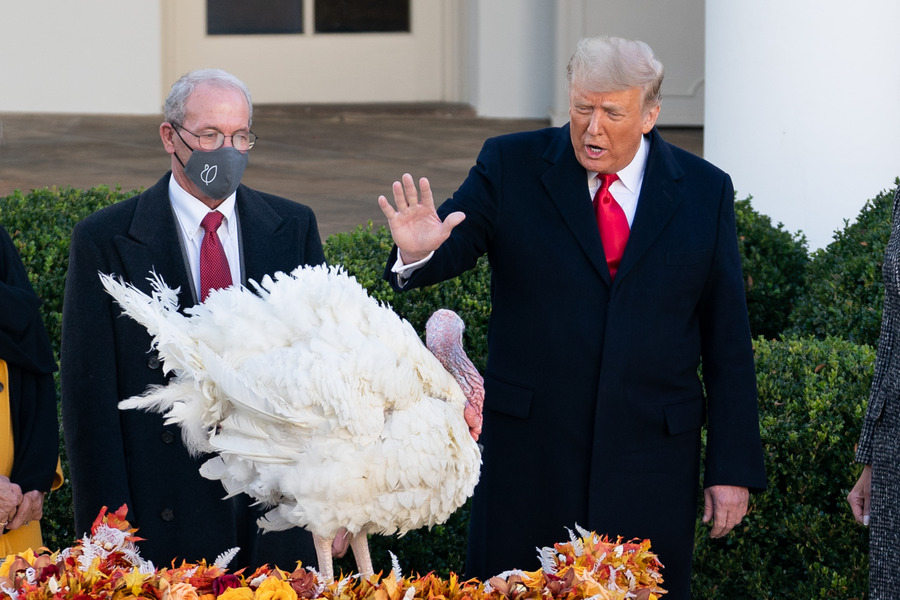Walter Russell Mead on Why the Libya Intervention Harms The Duty To Protect Norm
Walter Russell Mead argues (via Instapundit) that as a result of the Libya intervention, the world may be “farther from enshrining the duty to protect in international law than we were six months ago.” His reasoning:
Thanks to what China and Russia perceive (accurately, if that matters) as NATO overreaching in Libya, there will be no UN-blessed intervention in Syria.
Published by The Lawfare Institute
in Cooperation With

Walter Russell Mead argues (via Instapundit) that as a result of the Libya intervention, the world may be “farther from enshrining the duty to protect in international law than we were six months ago.” His reasoning:
Thanks to what China and Russia perceive (accurately, if that matters) as NATO overreaching in Libya, there will be no UN-blessed intervention in Syria. There will be no no-fly zone, no targeted financial sanctions, no arms embargo, not even a resolution to “consider” unspecified “measures” against Syrian President Assad. As the WSJ reports: “Mr. [Vitaly] Churkin [Russia's UN ambassador] said Russia couldn’t consider the resolution without taking into account the council’s actions in Libya.” Opponents of the resolution have pointed to what they call the abuse of a Security Council resolution they supported to set up a no-fly zone over Libya in February that was ostensibly to protect civilians against the repression of Col. Moammar Gadhafi’s regime. This is payback for NATO. Armed with a UN resolution written to protect Libyans from regime retaliations, NATO stretched the intended meaning to the breaking point, bombed Qaddafi’s forces and shifted to the offense to help the rebels defeat the regime. No tears for the Great Loon here, but one Security Council resolution a Wilsonian world order doth not make. Russia and China will not fall for that trick again, especially in Syria, where the Russians in particular have strong ties. The UN-supported intervention door is closed and we are if anything farther from enshrining the duty to protect in international law than we were six months ago. As I wrote at the time, if you play your cards cleverly and all the stars align, from time to time you can have a Wilsonian war. What you can’t get is Wilsonian peace: a Kantian world order based on liberal values and the rule of law. If we are going to bomb Syria, it will have to be the way we bombed Serbia, or worst case the way we invaded Iraq: with cheaper, lower grade holy water sprinkled by the less sacrosanct NATO priests on the bombs as in Serbia, or with just some Potomac water hastily and unconvincingly sprinkled by Pentagon chaplains on the bombs as in Iraq. But for the foreseeable future, as long as he is reasonably discreet and possibly even if he isn’t, President Assad can murder as many of his subjects as he wants with no fear that the UN will do anything about it. We stopped a relatively small scale massacre in a country that posed little threat to our interests (and from which we were getting some excellent intelligence cooperation I am told) at the cost of enabling what looks ultimately like a much larger bloodbath in a country where our vital interests are much more engaged, and whose government actively supports some of our most dangerous enemies in the region.President Obama in his March 28 Libya speech acknowledged some of these points. He said that the United States could not intervene in every oppressive nation, and added that it should intervene when it can, consistent with its interests, when there is proper international support:
In fact, much of the debate in Washington has put forward a false choice when it comes to Libya. On the one hand, some question why America should intervene at all -– even in limited ways –- in this distant land. They argue that there are many places in the world where innocent civilians face brutal violence at the hands of their government, and America should not be expected to police the world, particularly when we have so many pressing needs here at home. It’s true that America cannot use our military wherever repression occurs. And given the costs and risks of intervention, we must always measure our interests against the need for action. But that cannot be an argument for never acting on behalf of what’s right. In this particular country -– Libya -- at this particular moment, we were faced with the prospect of violence on a horrific scale. We had a unique ability to stop that violence: an international mandate for action, a broad coalition prepared to join us, the support of Arab countries, and a plea for help from the Libyan people themselves. We also had the ability to stop Qaddafi’s forces in their tracks without putting American troops on the ground. (emphasis added.)I am not sure that Mead is right to suggest that we invaded Libya at the expense of invading or sanctioning Syria, for I am not sure we would have had the gumption to invade Syria, and Russia likely would have vetoed a use of force or sanctions against Syria even if the Libya invasion had never occurred. But I think Mead may be right that the intervention in Libya will not (as some hope) be the dawn of a broader norm in support of the responsibility to protect because Russia and China, as a result of NATO overreaching, will not in the future support similar interventions, making intervention harder as a practical and legal matter.
Jack Goldsmith is the Learned Hand Professor at Harvard Law School, co-founder of Lawfare, and a Non-Resident Senior Fellow at the American Enterprise Institute. Before coming to Harvard, Professor Goldsmith served as Assistant Attorney General, Office of Legal Counsel from 2003-2004, and Special Counsel to the Department of Defense from 2002-2003.





